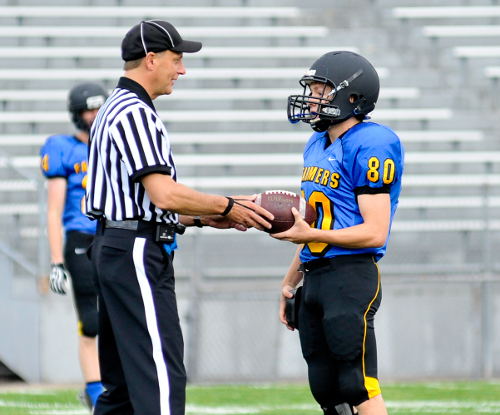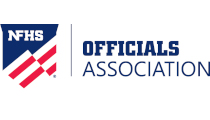
Have you ever been on the field or court with an official that made this statement: “I don’t respect that punk coach, he’s just a crybaby!”
Maybe you worked with an official that said, “Listen kid, I’ve been calling games longer than you have been alive, just shut up and play!”
Worse yet, maybe you officiated with someone that informed you as you started a pregame discussion, “I been doing this long enough, you don’t need to talk to me about this game!”
What type of respect does this official expect from others when that behavior clearly demonstrates that he or she has no respect for others involved in high school sports? Most officials were taught that respect is a two-way street. If you give respect, you will get respect. We also understand that respect is earned.
When an official walks into a contest, the coaches should be afforded respect for their position. In most cases, they are educators that are taking extra time to work with student-athletes. Certainly, there are coaches with behavior issues and conduct that must be addressed during an athletic contest. That doesn’t mean they don’t deserve respect for their position. If an official demonstrates a respect of the coach even when the coach is not acting respectfully in return, it is noticed. Fans, players and administrators will notice when officials show respect and officials can leave the contest with their heads held high.
Meeting with the playing captains can often seem like communicating with statues or cardboard cutouts. Still, officials must treat captains with respect and be an example of how they hope to be treated in return. Most captains may not remember a word officials say; they will remember the attitude in the meeting.
Another important thing to remember is that respect is like a snowball. The more you roll with it, the larger it gets. Disrespect can quickly become an avalanche. Chances are if you don’t respect a coach or a captain, you will demonstrate disrespect to a fan or maybe even the bench officials working with you. That same disrespect can creep into a conversation with game management or worse yet, your officiating partners.
An official’s comments away from a contest can also carry disrespect. We may know an official that says, “I hope I never work at that school. They are all jerks there.” Don’t think that those comments don’t get to people involved at that school and when you do work game there, you already have an issue. Posting negative comments on social media is also an absolute mistake.
Officials can often feel disrespected by players, coaches, fans, administrators, assigners, state staff and local association leadership. It may not even be a feeling of disrespect; officials may have actually have been disrespected. An official’s greatest challenge is to rise above that feeling and demonstrate that wearing the stripes means they are held to a higher standard. Showing and offering respect to all those around them will eventually lead to being respected.
Dave Sheets
Dave Sheets is the chair of the NFHS Officials Publications Committee.
Most Recent Articles
- nfhs news NFHS Learning Center Delivers 25 Millionth Course
- Track & Field/Cross Country article Effective Communication with Athletes and Coaches
- nfhs news Player Equipment Changes Highlight 2025 High School Football Rules Revisions
- Player Equipment Changes Highlight 2025 High School Football Rules Revisions
- nfhs news Judgment Call on Second Contact Eliminated in High School Volleyball






